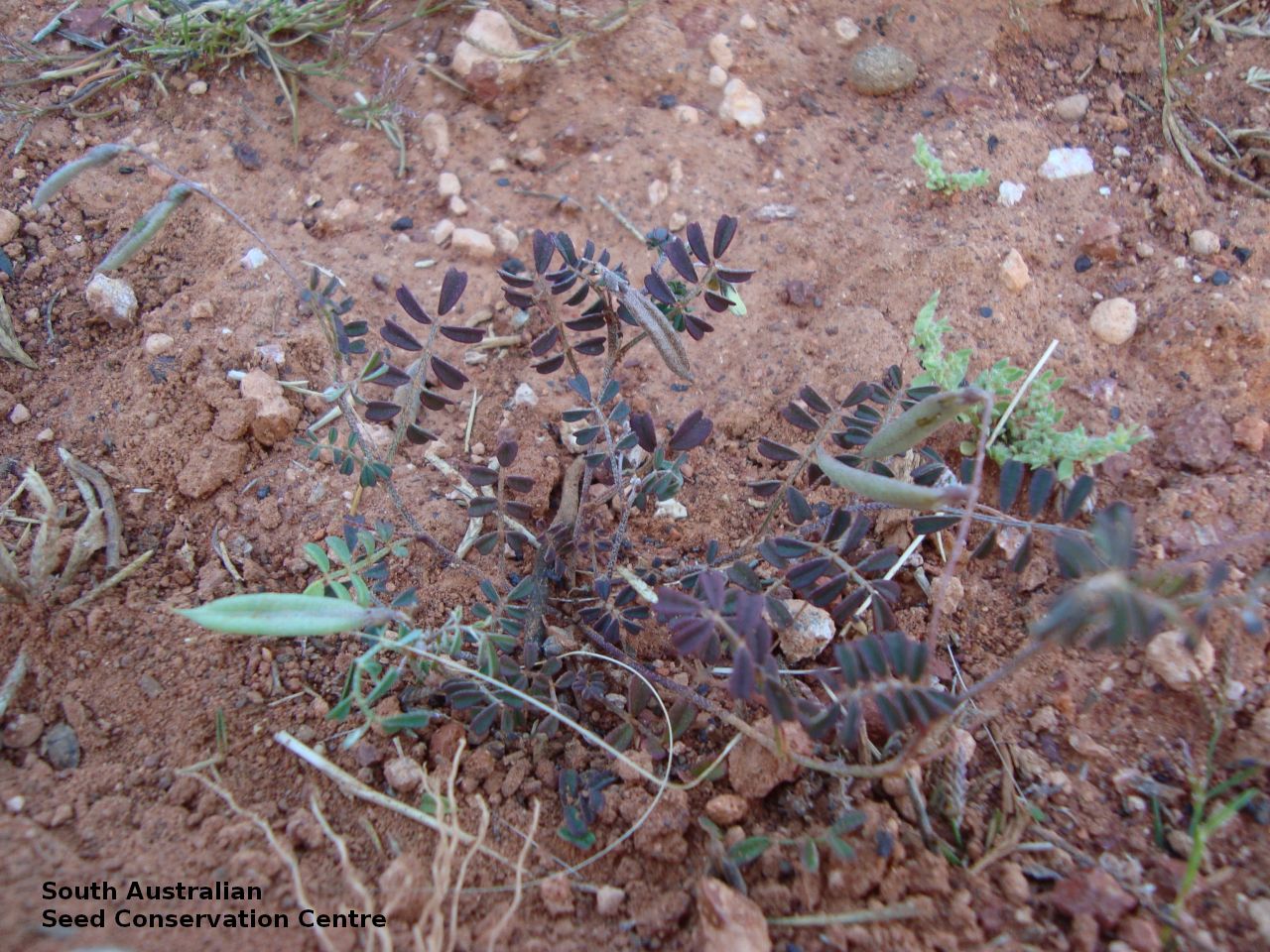
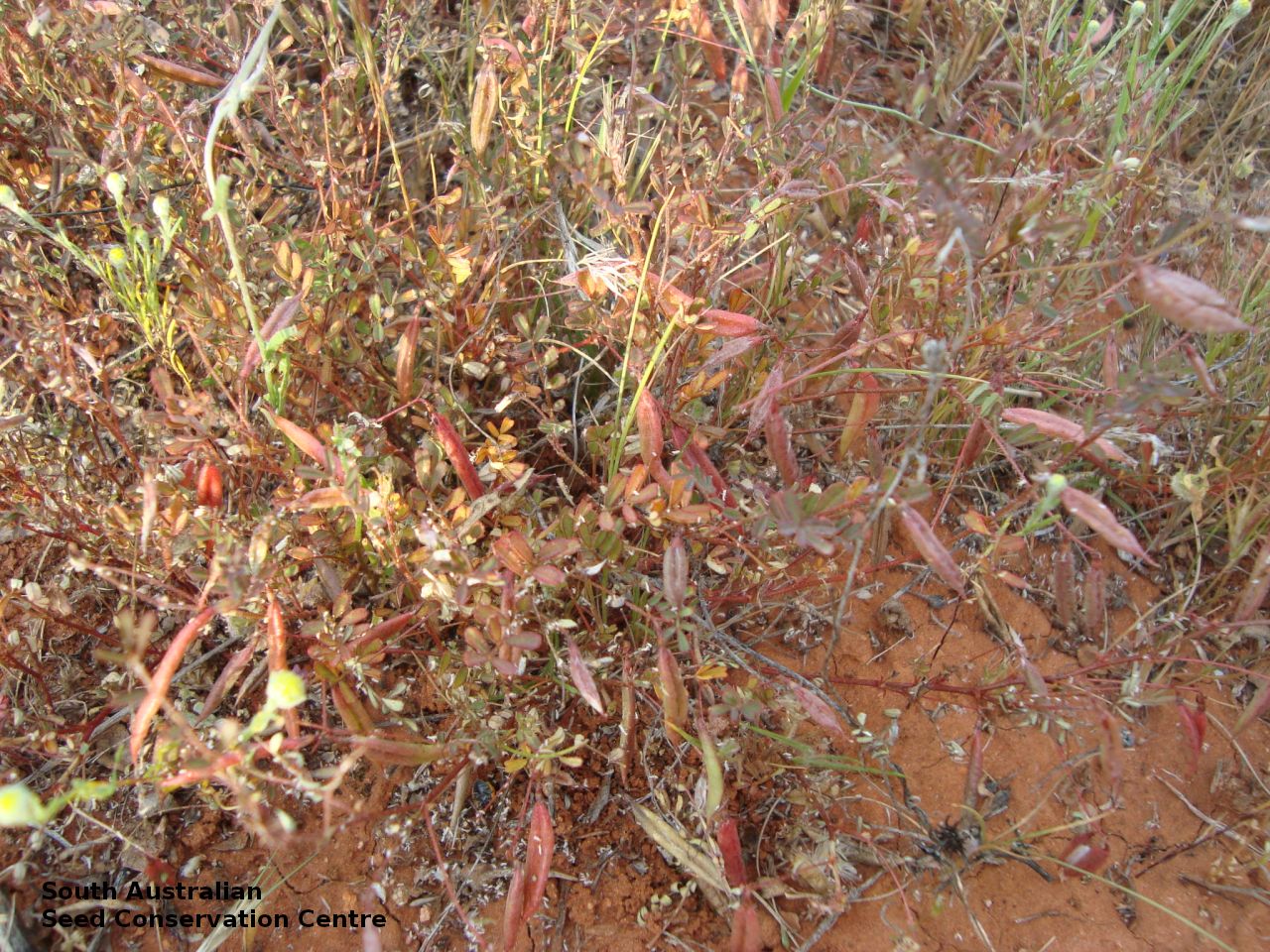
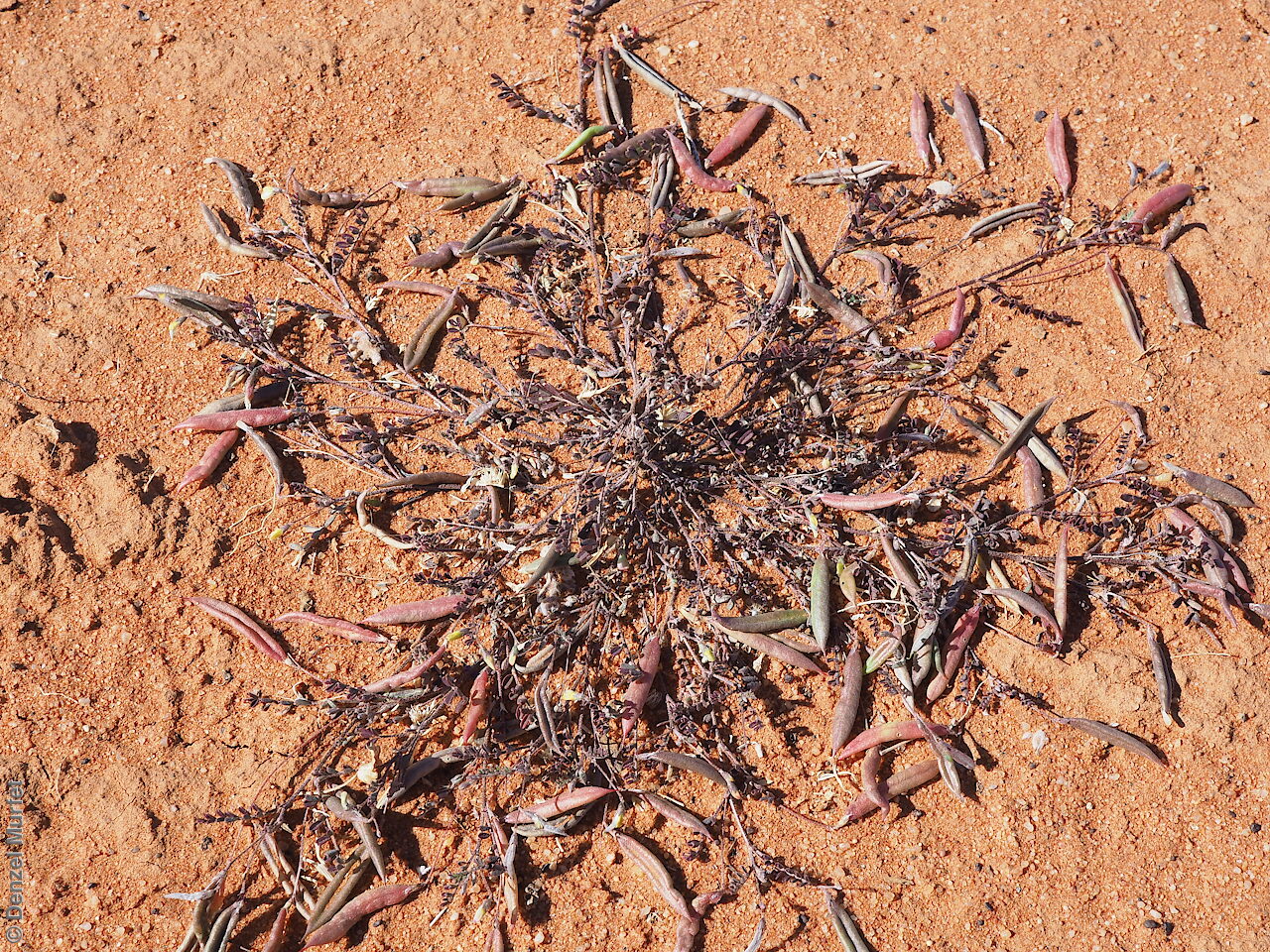

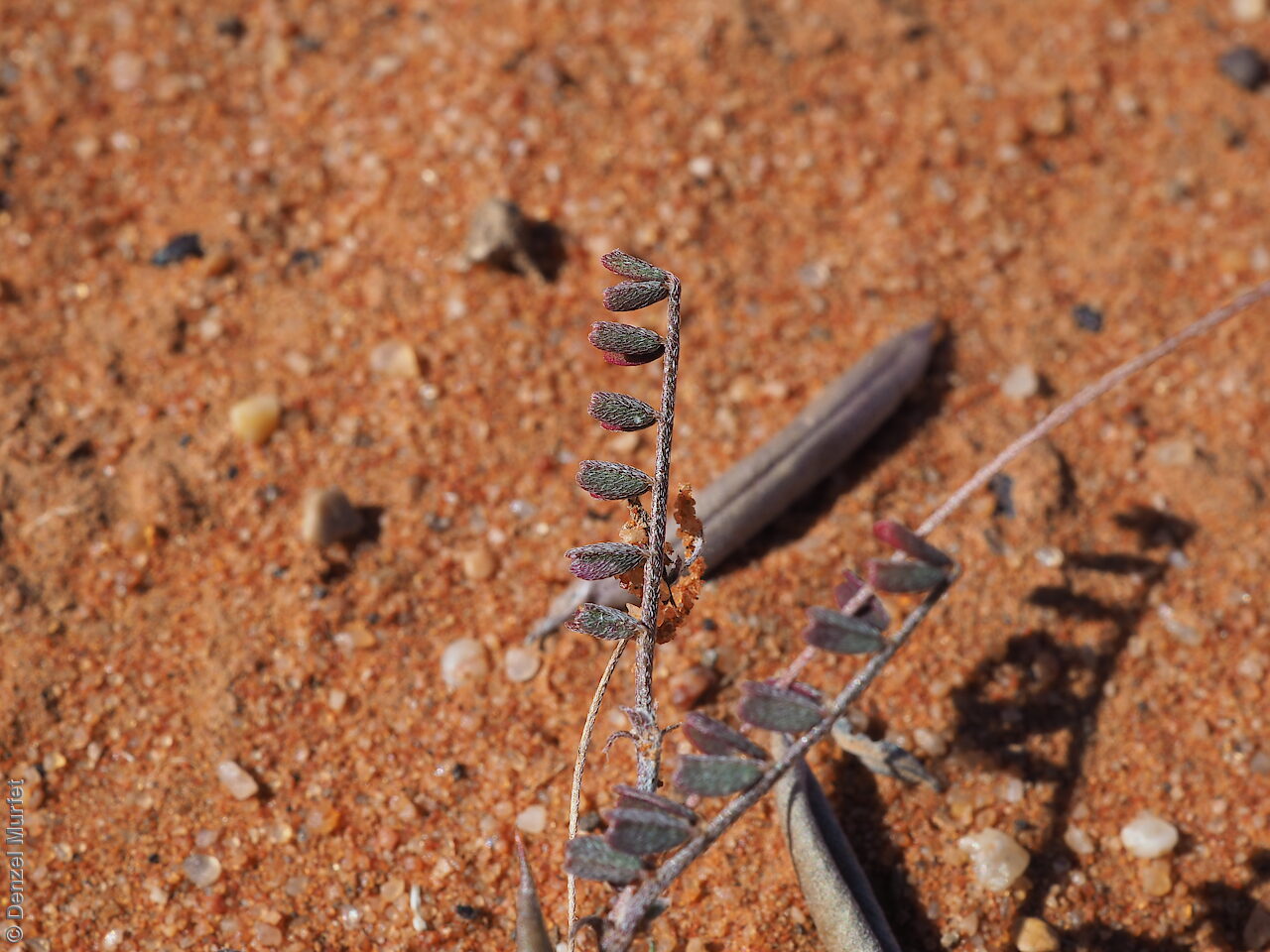

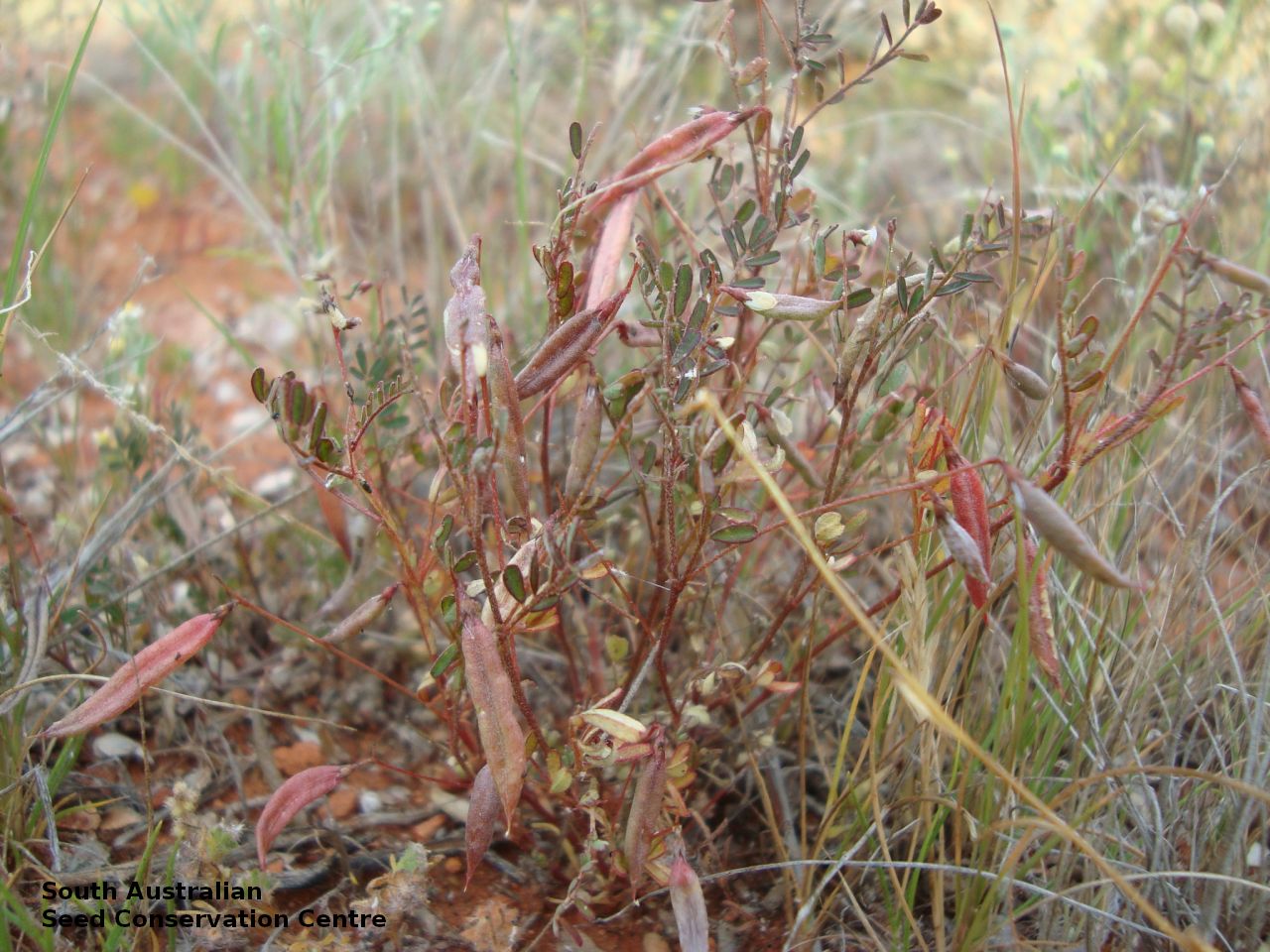


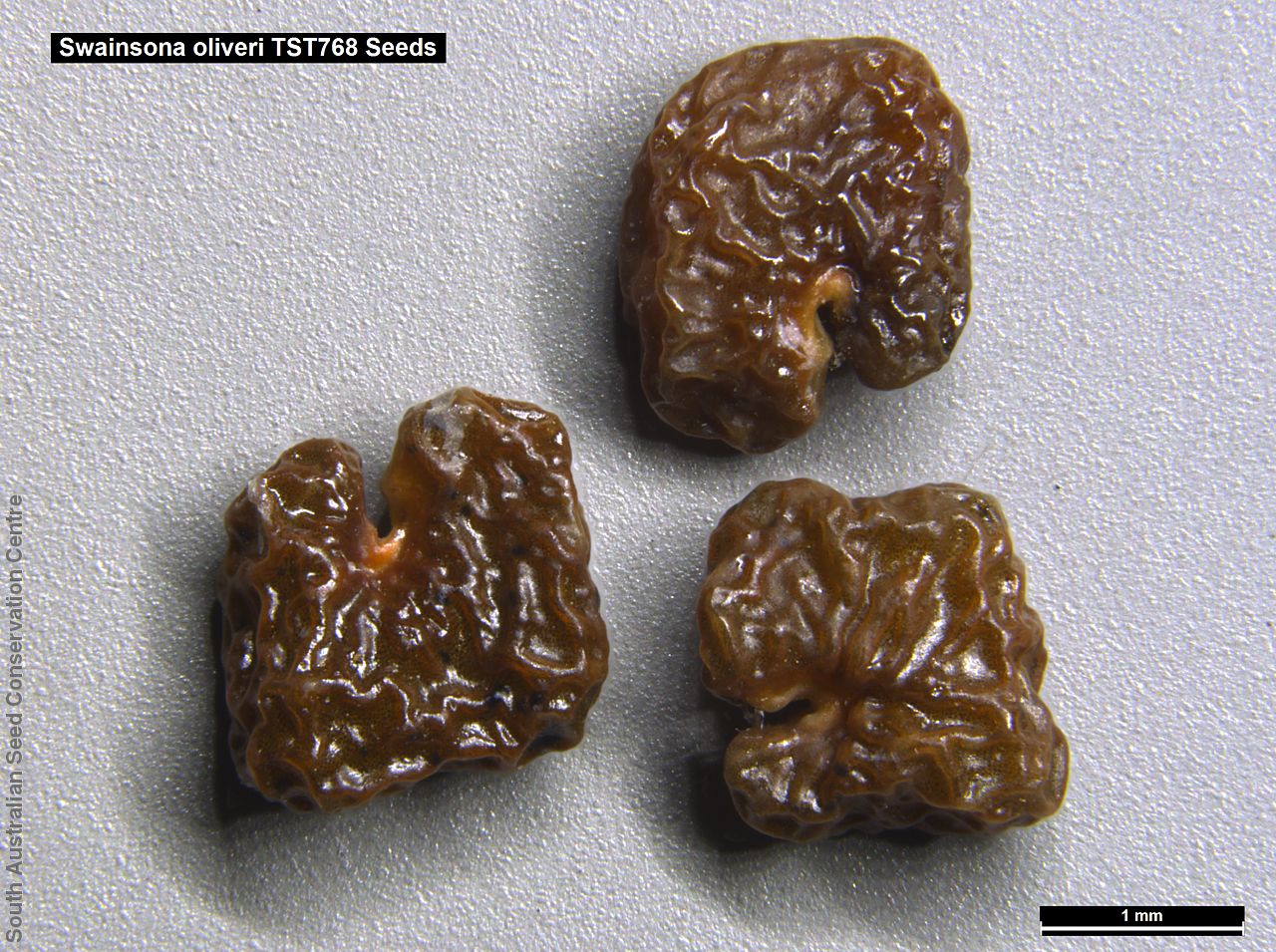



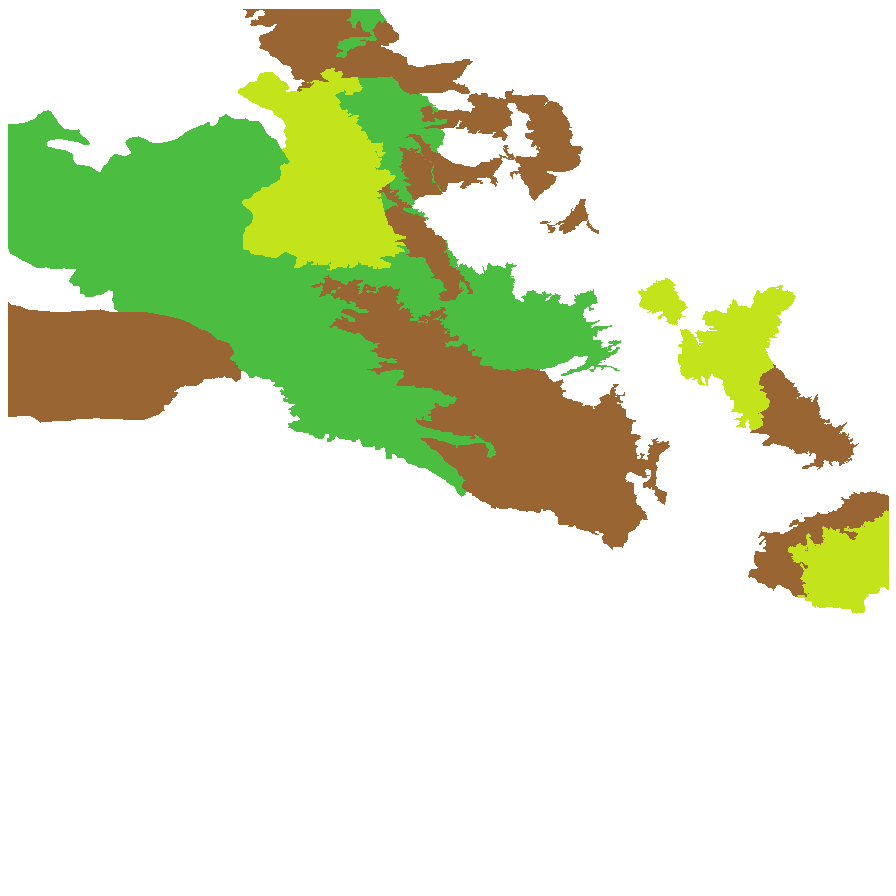
Botanical art
Etymology
Swainsona named after Isaac Swainson (1746-1812), an English scientist and horticulturalist who had a private botanic garden near London. Oliveri named in honour of John Oliver who collected the type specimen for the species from near Port Eucla in 1882.
Distribution and status
Found in plain and rocky slope on loamy or sandy soil in the drier parts of South Australia. Also found in Western Australia and New South Wales. Native. Common in South Australia. Common in other states.
Herbarium regions: North Western, Lake Eyre, Nullarbor, Gairdner-Torrens, Flinders Ranges, Eyre Peninsula
NRM regions: Alinytjara Wilurara, Eyre Peninsula, South Australian Arid Lands
AVH map: SA distribution map (external link)
Plant description
A slender prostrate plant with a reddish appearance. Leaves 1-4cm long with 9-13 hairy, heart-shaped leaflets, 1-7mm long. Flowers tiny 3-5mm, cream or yellow. sometime tinged with pink. Fruits are long pale to dark brown papery pod, covered in minute hairs. Seeds are dark brown, semi-flat reniform seeds to 2mm long with a deep wrinkled surface. Seed embryo type is bent.
Seed collection and propagation
Collect seeds between September and November. Collect mature pods, pale or dark brown containing hard seeds. Mature pods can be found lying on the ground next to the plant containing hard seeds. Place the pods in a dry area and leave to dry. Use a rubber bung to rub the pods or break the pods open with your fingers to dislodge the seeds. Use a sieve to separate the unwanted material. Store the seeds with a desiccant such as dried silica beads or dry rice, in an air tight container in a cool and dry place From two collections, the seed viability were high, ranging from 80% to 100%. This species has physical dormancy that needs to be overcome for the seed to germinate (e.g. nicking or softening the seed coat).
| Location | No. of seeds (weight grams) | Number of plants | Date collected | Collection number Collection location | Date stored | % Viability | Storage temperature |
|---|---|---|---|---|---|---|---|
| BGA | 2,700 (4.6 g) | 50 | 19-Sep-2009 | TST768 Gairdner-Torrens | 1-Jun-2010 | 100% | -18°C |
| BGA | 5,800 (12.45 g) | 25+ | 1-Nov-2010 | MJT328 Gairdner-Torrens | 1-Jan-2012 | 80% | -18°C |
Number of plants: This is the number of plants from which the seeds were collected.
Collection location: The Herbarium of South Australia's region name.
% Viability: Percentage of filled healthy seeds determined by a cut test or x-ray.